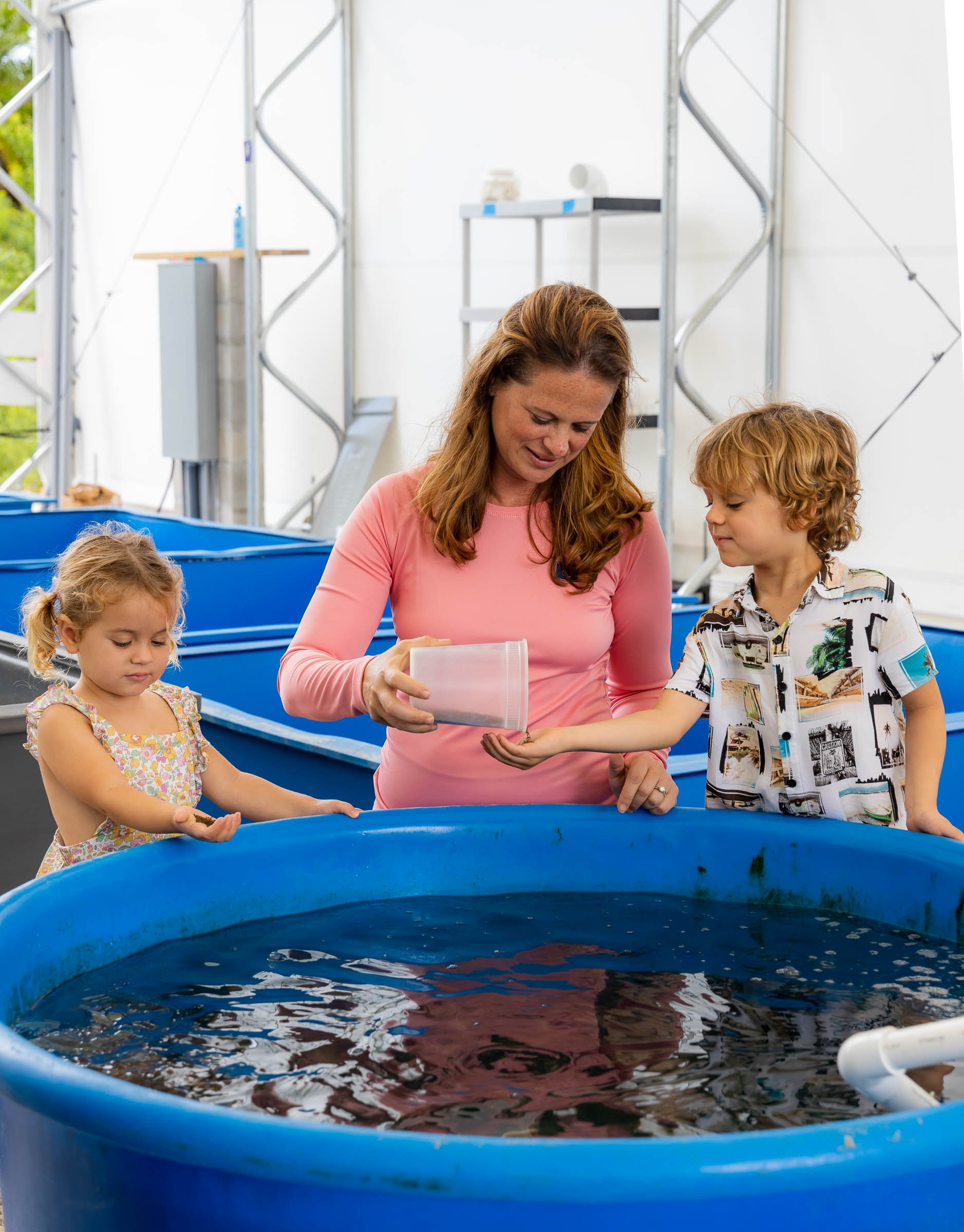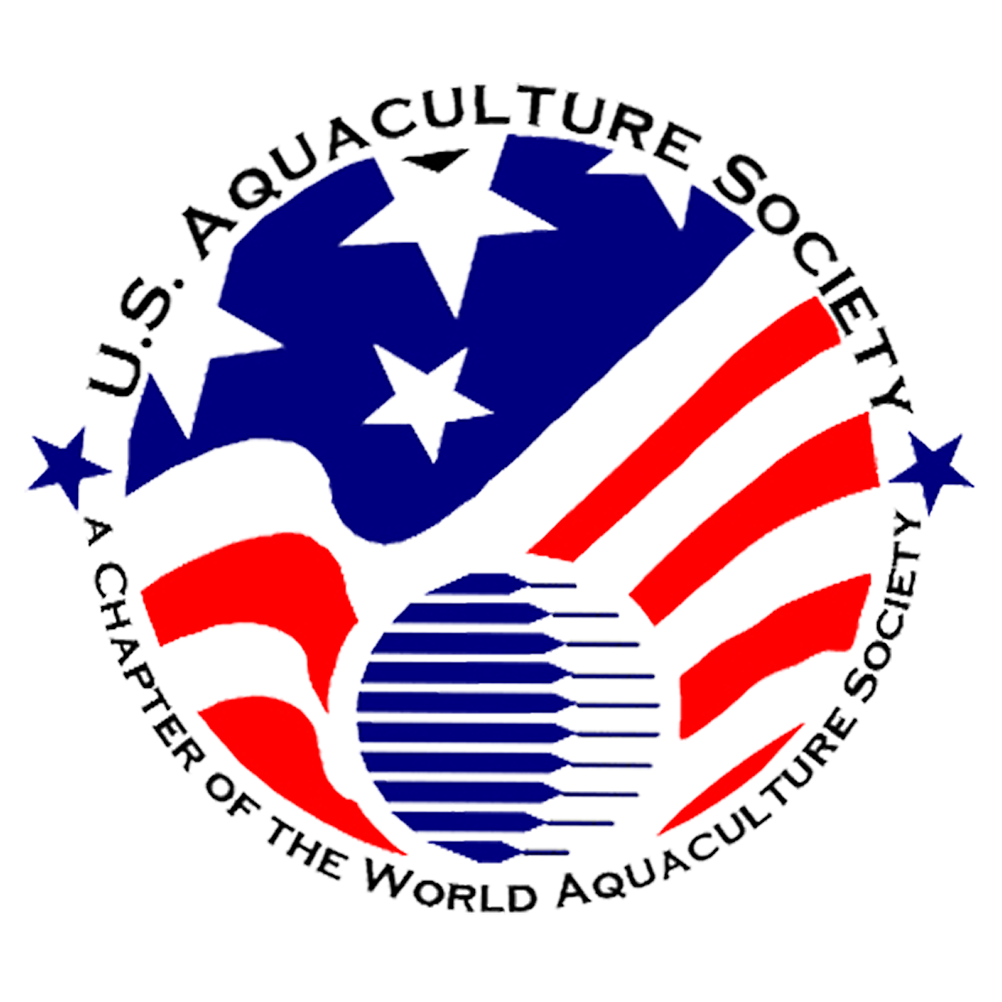Live Advantage Bait owner interviewed at Aquaculture America 2023



Our next interview was with Nicole Kirchhoff. Nichole was interviewed by Stephen Pinna at Aquaculture America 2023. Interview edited by Carla Schubiger.
“…there are a lot of walls and obstacles, especially when you start a company, and you must learn how to scale them and problem-solve.” - Nicole. Read more of their exciting interview below!
1. What is your position and what are you working on?
My name is Nichole Kirchhoff. I own a company called Live Advantage Bait. It is a marine bait, fish, and food fish farm. We are primarily a hatchery and we do some grow out of bait fish. Right now, we are producing four different species regularly: Pinfish, Atlantic Croaker, which are the two baitfish species, and Red Drum and Pompano are the food fish species. But we shift to whatever the customers demand.
2. How did you first get involved in the field of Aquaculture, and what was the position?
I was always a super outdoors person, big into sailing, and my first job was a kayak instructor, so I always wanted a job that got to be outside constantly. I always liked fish and fishing and being out in the ocean. So when I graduated from the University of Miami with a marine biology degree, I applied for many master’s programs. I found this, at the time, kind of obscure lab up in Maine called the Center for Cooperative Aquaculture Research (quite well known now). So I asked if I could have a tour, and on the tour, I said I would love to volunteer here. After two weeks, they offered me a fully paid master's student position and a full-time working position, and I was instantly into aquaculture! They had two businesses at the time, sea urchins and Atlantic halibut - while sea urchins were my masters work, 40 hours a week I spent in the halibut nursery and learned a lot of live feeds techniques, and got the bug for production, really loved thinking about it as a business!
For the next challenge, I decided to get a PhD and went to University Tasmania in Australia to work with Bluefin Tuna. I got a full scholarship, and for the first three years, I worked on my PhD directly with the Bluefin Tuna industry. I got flown there every week. On Sunday, I'd fly to the cages, and on Friday, I got to fly home with all my samples. For six months of the year, flying back and forth to Port Lincoln, Australia from Tasmania, and that ended up into a job. I worked there for two years as a fish health researcher for the tuna industry. I loved every minute of it; we did the first offshore aquaculture trial in the world where we had cages nearshore, compared to cages offshore, and did parasitology on them. Then, I came back to Florida. There are no jobs like that in Florida; there are no big companies to work for, and after a lot of thinking, I decided to start my own business. I couldn't get food fish to work out on paper in the United States because of all the regulations, but bait fish had potential even though it had never been done commercially. I started my company, and this year in May, will be the 10th year of my company. Currently, I don't have any investors. I own the company 100% myself. It takes a lot of hard work and a lot of bootstrapping, but you follow the journey, and there are a lot of walls and obstacles, especially when you start a company, and you must learn how to scale them and problem-solve. But it is fun. You can run a business, do research, and be innovative simultaneously.
3. What advice would you give someone starting in the field of Aquaculture?
This is not an industry you enter because you want to make a lot of money. We go into this because we are extremely passionate. When I interview employees, you can see that passion in their faces. After work they like to go fishing, or they always think of new questions and reading literature and coming up with ideas. They are not just doing the routine things on the job. Such a mindset will get you really, really far.
The other thing is that right now, there are lots of jobs in aquaculture, but that was not the case about three or four years ago. I got my first job by being so passionate about it that I would volunteer at a place. Be an intern at a place and then show them how hard you work and how passionate you are. Such a mindset will go a long way to getting a position.
4. What is something that most people don’t know about the Aquaculture Industry or your role in the Industry?
This is a very, very, small industry - not just domestically but internationally, and one of the issues that many Americans have in the industry is that our domestic aquaculture program is behind the rest of the world. You can't be afraid to learn from overseas. We have to look and learn from overseas and not reinvent the wheel.
5. Do you have a funny story to share about something that happened to you in Aquaculture?
So when I worked in the bluefin tuna industry, I had to go on the boats with the commercial guys for every harvest, and these are fishermen; they are pretty rough. They all became my friends, but initially, they did not like researchers. They did not want us to be present on their boat. They equated us to compliance officers or a giant waste of their time, but I was the only person on the boat a lot of days as and became their friend.
They told me that to be part of them, I had to be indoctrinated into their group, which apparently meant that on a bluefin tuna harvest, I had to drink fresh blood from a fish, which was absolutely disgusting! It tasted like looking at a stainless steel bench, but after that, I was one of them, and I could get on whatever boat I wanted and drink with them at the bar and do whatever I wanted.
6. In your opinion, what is the most fascinating part of the industry and why?
It is enjoyable being a fish farmer, especially when you go to weddings or places, and people ask what you do, and you say, “I have a fish farm”. You end up having a 30 to 45-minute conversation about how cool your job is. Whatever high school student comes and is my intern for the summer, they always say, “This is the coolest thing ever, and like it!” It invigorates everyone at the farm because we forget how cool this is. It is incredible that we get to do this every day. For me, that is the big thing.
7. What is a trend that you’ve seen come and go or where do you envision the Aquaculture Industry in 10 years?
Owning a business through COVID was interesting, and I have seen many changes in the customer base because of COVID and what people are interested in. COVID had a huge impact on the aquaculture industry. We all had to work through COVID because we were raising animals. We are all essential, but, for example, shellfish farmers had no product to move. There were no restaurants to sell the clams to. Very few people buy clams for their own house, especially when they only go to the grocery store once a week.
Since then, I have seen a considerable shift in clients, who wanted to diversify into other products, because they want to make sure that if something like that happens again, they still have other products to sell. So I got some shellfish farmers who now want to dabble in growing bait on the side. Businesses wish to do more than one species. A lot of people are saying, “I am doing redfish now. What other species can I add to my portfolio that you can produce for me?” I'm getting that question a lot.
The other thing that is happening is there is a lot more interest from the investment world in starting or financing food. Because when the borders got closed down, people asked, “Where is our food coming from? Oh, shoot.” We import a lot of our seafood. How can we do this domestically? How can we control this for national security and for food supply? So I think because of COVID, there has been a diversification and increase in interest in growing food.
8. Being a woman in aquaculture, what are the challenges/successes you’d like to share?
So, there are a lot of challenges that being women in agriculture. You have to fight sometimes to get into the room because the “old boys club” does not want you in there. And when you fight and succeed to get in there, they always call you the “B" word.
But now, I have decided to use the B-word as a badge of honor.
And that’s a wrap on Nicole’s interview! Ending this interview with a bang, we look forward to next month’s interview where we chat with Andrea Tarnecki from Auburn University
